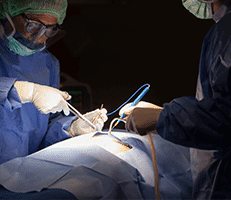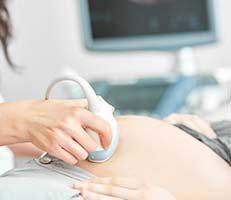Endometriosis Specialist in Miami, Florida

OB/GYN Associates of Miami
OBGYNs located in Miami, FL
Do you experience severe pelvic pain during your period? Are you struggling with infertility? You may have endometriosis, which is a gynecological condition that affects up to 11% of women of childbearing age in the United States. OB/GYN Associates of Miami specializes in the diagnosis and treatment of endometriosis and can provide the answers and care you need. To schedule an appointment, call the office in Miami, Florida, or use the online appointment tool.
Endometriosis Q & A
What is endometriosis?
Endometriosis is a painful gynecological condition in which the endometrial tissue grows outside your uterus. Every month your uterus prepares itself for ovulation and pregnancy by growing endometrial tissue, which contains glands, blood cells, and connective tissue. If your egg isn’t fertilized, your body sheds the endometrial tissue during menstruation.
If you have endometriosis, the endometrial tissue grows in areas outside your womb, such as your fallopian tubes, ovaries, or the outer portion of your uterus. Like the tissue in your uterus, the endometrial tissue located outside your uterus grows in response to ovulation and then tries to shed.
What are the symptoms of endometriosis?
Most women with endometriosis experience pelvic pain that’s more severe during menstruation. Other symptoms include:
- Heavy menstrual bleeding
- Pain during intercourse
- Pain during urination or bowel movements
- Bleeding outside your normal menstrual cycle
- Diarrhea, constipation, or bloating
Over time, the endometrial tissue may lead to the development of scar tissue that causes chronic pelvic pain and infertility.
How is endometriosis diagnosed?
At OB/GYN Associates of Miami, your doctor performs a comprehensive evaluation when you come in with symptoms that sound like endometriosis. During your exam, they ask detailed questions about your symptoms, gynecological history, medical history, family history, and menstruation, and then they do a pelvic exam.
Your OB/GYN may also request an ultrasound or MRI to evaluate your reproductive organs and look for signs of endometrial tissue growth on other organs. Though imaging studies provide further information to explain your symptoms, a diagnostic laparoscopy is the only method that provides a definitive diagnosis.
During a diagnostic laparoscopy, your provider at OB/GYN Associates of Miami inserts a laparoscope (surgical camera) through a small incision in your abdomen to view your organs and look for endometrial tissue growth. Your provider takes samples of tissue for evaluation and may surgically remove as much of the endometrial tissue as possible during the procedure.
How is endometriosis treated?
Treatment for endometriosis focuses on alleviating your symptoms. The specifics of your treatment plan may depend on your current and future pregnancy plans.
If you have no current plans for pregnancy, the team at OB/GYN Associates of Miami may prescribe hormonal birth control to minimize endometrial tissue growth.
If you’re trying to get pregnant, they may prescribe a gonadotropin-releasing hormone (GnRH) agonist, which stops ovulation and the growth of endometrial tissue. The GnRH agonist induces menopause, but when you stop the medication you may have an easier time getting pregnant.
If your symptoms are severe, surgery to remove the endometrial tissue may be recommended.
For comprehensive endometriosis care, call OB/GYN Associates of Miami or use the online scheduling tool to book a consultation.



















